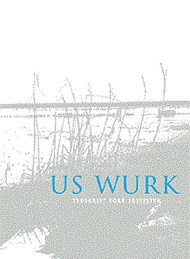De dea fan ea en nea
Abstract
Around 1700 in written Frisian the native words meaning ‘ever’ and ‘never’ (ea and nea) were substituted by Dutch ooit and nooit. Though this is not a unique phenomenon, as by that time some more Dutch function words had been borrowed already, it is undoubtedly surprising that these words were replaced in such a short period and so irreversibly. In a recent article, Hoekstra, Slofstra & Versloot (to appear) present an analysis of this sudden change. The present article, which is descriptive rather than analytical, discusses the overall development of the lexical field of temporal adverbs in Frisian from the middle ages until the eighteenth century. The constituent words within this field were distinguishable by two semantic features dubbed ‘temporal aspect’ (basically: past versus non-past) and ‘quantification’ (e.g. NP items vs FC and universal-like items). Gradually, the quantitative distinction gained importance, whereas the aspectual distinction was driven to the background. In essence, this very same historical development is common to all West-Germanic languages (Frisian, Dutch and German), although the results differ somewhat from language to language.
Hoekstra, Slofstra & Versloot (forthcoming) offer an account of the shift from (n)ea to (n)ooit within this overall historical development, focusing on the quantitative dimension, which is most relevant to the account offered. In the current article I cover both sides of the historical development in Frisian, thereby stressing its internal coherence. The importance of knowledge of this historical background is illustrated using examples of unclear sentences from seventeenth century Frisian.

